- ABOUT IHSSABOUT IHSS
- PEOPLE
- NEWS & EVENTSNEWS & EVENTS
- RESEARCHRESEARCH
- FELLOWSHIPS & GRANTSFELLOWSHIPS & GRANTS
- TEACHING & LEARNINGTEACHING & LEARNING
- PUBLICATIONSPUBLICATIONS
Title:
Home Video — A Story of Birth (家庭錄像—一個關於生育的故事)
Date:
November 20, 2015
Venue:
Lecture Hall, G/F, May Hall, The University of Hong Kong (Map)
Rundown:
| 4:00 pm | Reception |
| 4:30 pm | Film screening |
| 5:30 pm | Discussion with Qiong Wang and Yi Jian |
Language:
| Film screening: | Putonghua dialogue, Chinese & English subtitles |
| Discussion: | Putonghua & English |
Enquiry:
(Tel) (852) 3917-5772
(Email) ihss@hku.hk
Synopsis
This is a film about forgetting and remembering, deserting and forgiving, abortion and reconciliation, scarring and healing. Armed with an HD camera, 22-year-old Qiong digs deep into her family’s unspoken history and reality, exploring the complexity of politics, gender, sex, birth control as well as the social political power over women’s bodies. The film is at the same time deeply intimate, and powerfully political as it exposes a China through the lens of family and body politics.
Qiong’s mother was pregnant eight times, and gave birth four times. In early 1990s, she gave birth to two girls, Li and Qiong. After that, in order to have a son, she got pregnant another six times in 10 years.
Among the five aborted girls, one survived: Jin. In the 7th month of the pregnancy, Qiong’s mother found out Jin’s gender and had an artificial miscarriage procedure carried out in a hospital. Yet the child came out alive, and the parents wrapped the infant in some clothes, along with RMB50 and a packet of milk powder, and put her beside a road leading into the village. However, the premature Jin had somehow survived with ulcers all over her body after spending a week in the January frost. The parents later gave her to their sister who was infertile. She agreed to bring Jin up as her own child.
Jin and Qiong grew up together as “cousins,” having no idea of their real relationship. Not until Jin became an adult did their parents explain her history. Their parents were ashamed of their actions, and hoped for forgiveness, but it was hard for Jin, now mother of a one-year-old and was getting ready to do migrant work in the coastal area. Li, Qiong’s elder sister, got pregnant again in her second marriage and was expecting her second baby in 2014. Under pressure to bear a male heir, Li, like her mother once did, would choose an abortion if the baby was found out to be female. At this critical moment, Qiong wants to see what a camera can do to for the family.
Director‘s Statement
Every day on my way to primary school, I would see in a creek newly aborted fetuses: downy, deathly white. Aborting female fetuses, unconstrained by law, had become almost standard practice.
For more than thirty-five years, under China’s coercive One-Child Policy, many women repeatedly abort until their first-born was a male. The bodies of aborted girls would be thrown into a river, gutter or dump. The impact has been the profound disruption of the basis of traditional Chinese culture and society: the family, as shown in mine.
Catastrophe notwithstanding, women like my mother are reluctant to remember or even acknowledge that period of their lives, unwilling to recall the ubiquity of violence and helplessness.
This project started with smaller aspirations: to throw into the open the questions and tensions built up from my childhood. What actually happened when the doctor gave my sister the lethal injection — how did she survive? How has her past affected her childhood, adulthood and now her own motherhood? How much resentment remains? Why does my elder sister take abortion so lightly? Is it possible to even talk about these? My camera cannot heal, but can the process of asking and documenting that holds my family to share their point of view in a way reconciles with their experience?
My family is not alone: in that era there were millions of families like mine: helpless and desensitized parents, abandoned lives. I’d like to document women like my mother and sisters and reflect on our notions of life and existence. I want to make this documentary not to criticize the One Child Policy, nor to condemn our cultural practices and values: on some level, we are all victims and victimizers. What I am concerned with instead is the preservation and cultivation of human compassion and an appreciation for life.
China is developing quickly materially, but it is too fast for the culture and spirit of its people to keep up. If we allow ourselves to disown this chapter of our collective history as mothers did their female babies, that too would be a kind of crime.
概述
這是一個關於遺忘與記憶、遺棄與寬恕、墮胎與和解,創傷與療傷的故事。22 歲的瓊用鏡頭深入紀錄她自己家中隱秘的歷史與現實,探索政治、性別、生育控制的複雜關係以及交織在女性身體之上的社會政治權力。該片一方面極其私密,另一方面又是重要的公共記憶,讓人從一個家庭和它的身體政治看到了一個社會。
瓊的母親懷胎八次,生下四胎。她在 90 年代初誕下兩個女孩,莉和瓊,此後十年,她懷胎六次,只為生個男孩。
在那五個被墮胎的女嬰裡,有一個奇跡般地活了下來:金。懷胎 7 個月時,母親瞭解到金是個女嬰,便在醫院實施人工流產,沒想到胎兒出來居然還活著,父母便把她和一包奶粉與 50 塊錢一起包起來遺棄村口的路邊。然而,儘管在寒冷的臘月過了一個禮拜並且身體潰爛,早產的金竟然活了下來。父母之後將她送給父親不能生育的姐姐撫養長大。
金和瓊以堂姐妹相稱長大。直到金成年後,親生父母才告訴她真相,他們感到愧疚,希求原諒,但已是一歲大孩子的母親並打算外出打工的金做不到。瓊的姐姐莉,第二次結婚懷了二胎,將在 2014 年生產。在必須生男孩的壓力下,莉和自己母親當年想的一樣,決定如果胎兒是女的,就去墮掉。在這個關鍵時刻,瓊想知道,一台攝像機能為她的家裡做些甚麼。
導演闡述
念小學時,上學路上我每天都會看見小溪裡新近被墮下來的胎兒屍體,毛茸茸,煞白的。無法律約束的性別選擇墮胎已是習以為常。
中國在過去 35 年強制貫徹計劃生育,許多婦女為了生到男孩而不斷墮胎。女嬰的屍體被遺棄在河裡、水溝,或垃圾堆裡。它衝擊著中國文化和社會的根基——家庭。我的家就是其中一個。
儘管是場大災難,類似我母親這樣的女性不願回憶或承認那段人生,以及普遍的暴力和無助。
這個影片來自一個小的願望:尋求我童年以來疑惑和不安的答案。醫生如何給我妹妹注射藥物——她又如何死裡逃生?她的身世如何影響她的童年、成年和為人母的階段?她內心裡有多少恨?為何我姐姐會那麼輕易地選擇墮胎?我們有沒有可能來討論這些事?攝像機不能療傷,但是追問和紀錄家中女人們內心的過程是否能帶來和解?
無助麻木的父母、遺棄的生命——我這樣的家庭千千萬萬。我想去記錄那些像我母親和姐妹一樣的女性,以及反思我們對生命和生存的理解。我不想批判政策或者傳統,我關心的是對生命的敬畏,以及人類悲憫之心如何能培養和延續。
中國的物質生活飛躍,文化和精神卻難以同步。如果我們放任自己遺棄這些關於生育和生命的公共記憶,如同那些母親遺棄自己的女嬰那樣,那也將是一種犯罪。
王瓊,生於1992年,2015年畢業於井岡山大學。2012年以來,在青原色 (IFChina Original Studio) 從事志願工作,並成為青原色最活躍的青年導演之一。自2013年大二起,曾拍攝獨立紀錄片《沙問》、《圍牆》、《失落的鄱陽湖》,關注社會發展與環境污染等議題。
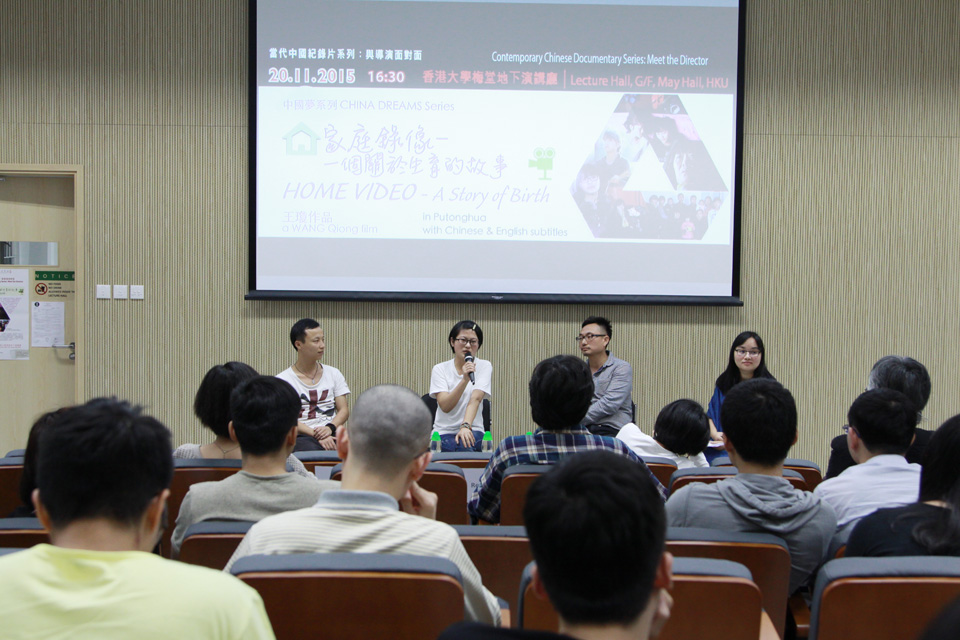
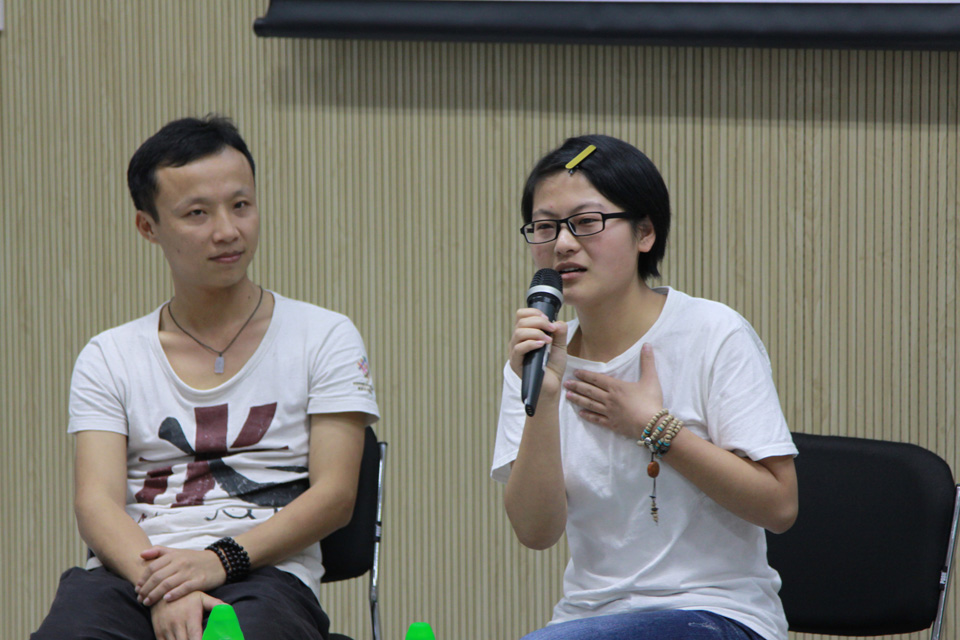
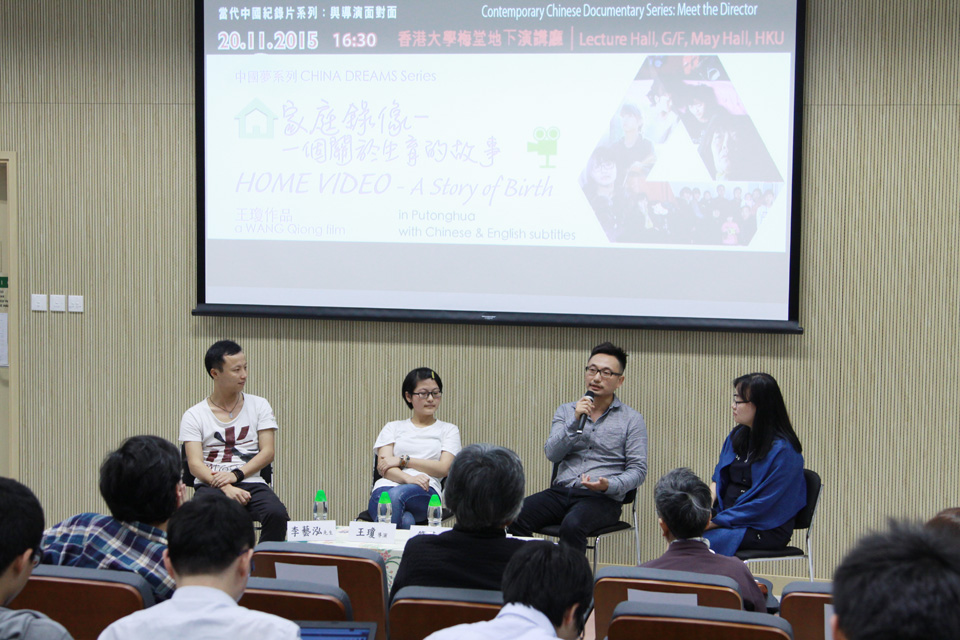
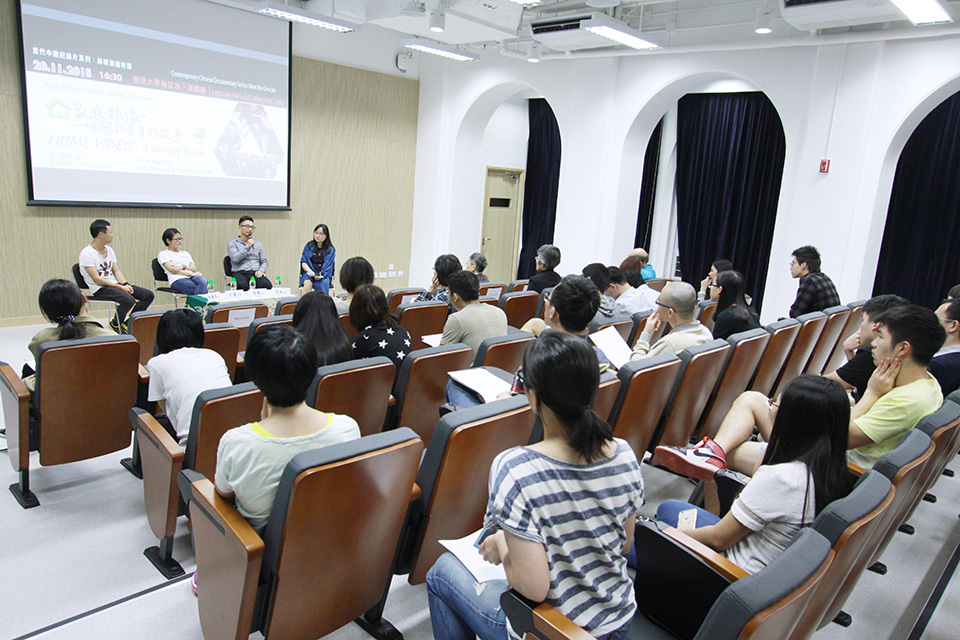
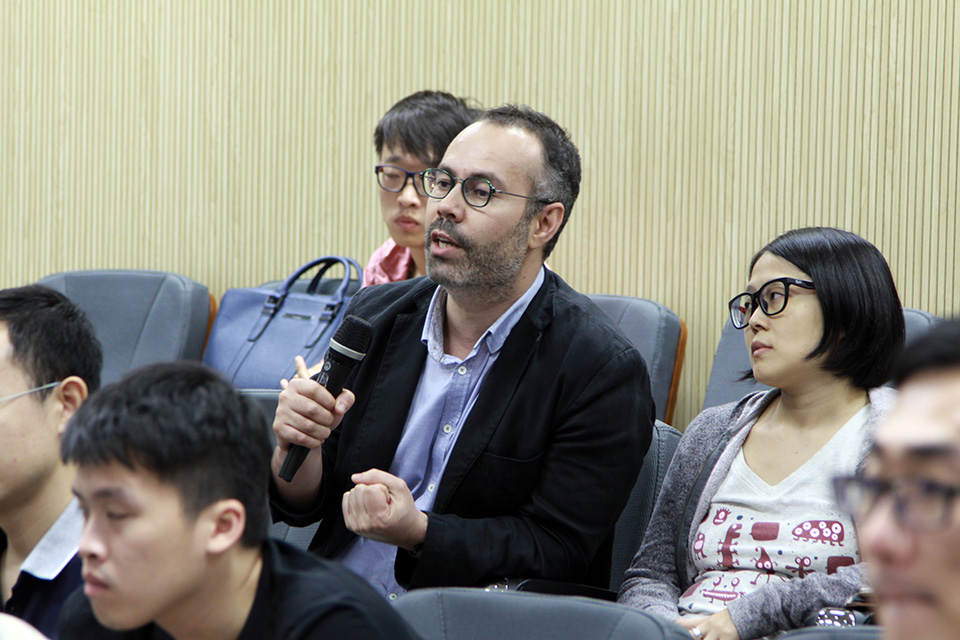
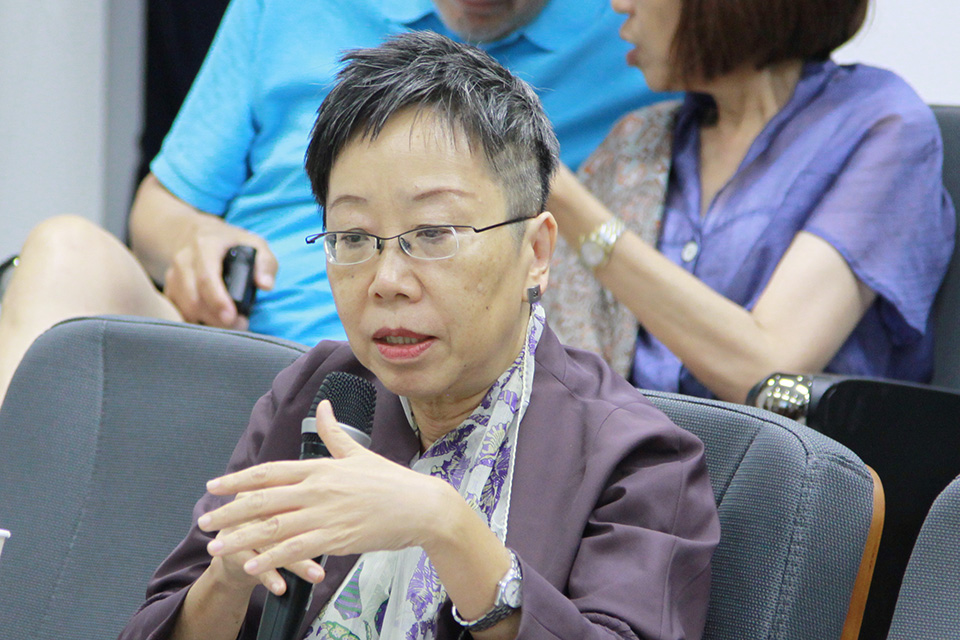
Copyright © 2025 Hong Kong Institute for the Humanities and Social Sciences, The University of Hong Kong. All Rights Reserved.